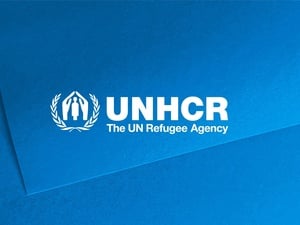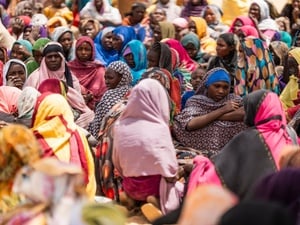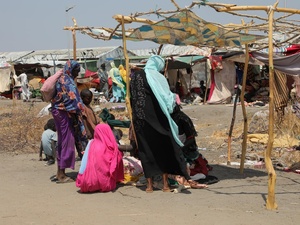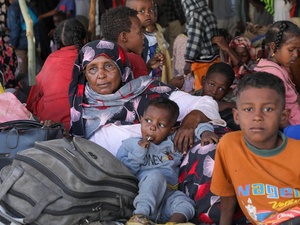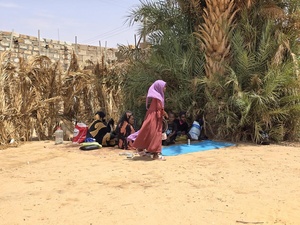Some 2,000 people flee from Tripoli by boat to Italy and Malta
Some 2,000 people flee from Tripoli by boat to Italy and Malta
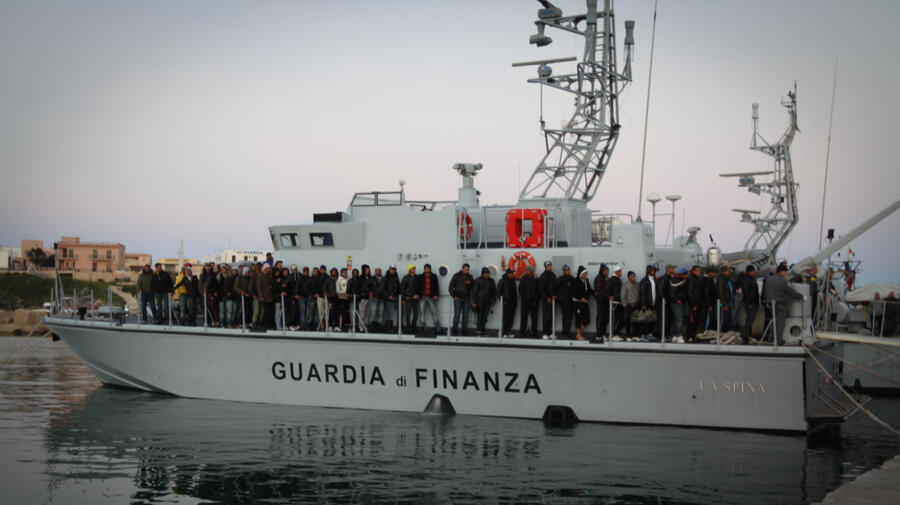
An Italian police vessel carrying people who were rescued from their foundering boat after setting off from Tunisia earlier this month in hopes of reaching Europe.
GENEVA, March 29 (UNHCR) - For the first time since conflict erupted in Libya in mid-February, hundreds of people have been fleeing by boat from Tripoli in recent days across the Mediterranean Sea to Italy and Malta.
"Five boats have arrived in Italy since Saturday evening carrying 1,484 people. Two boats arrived in Malta yesterday with 535 passengers," UNHCR's chief spokesperson, Melissa Fleming, told journalists in Geneva on Tuesday. By midday, a third boat had arrived in Malta with 250 people.
"Most of them are Eritreans and Somalis, with many women and children among them, but there are also Ethiopians, Sudanese and a number of other nationalities. To date, Libyans do not appear to be among those arriving in either country," Fleming said.
Passengers from the first boat disembarked on the tiny island of Linosa, some 50 kilometres north-east of Italy's southernmost territory, Lampedusa Island. Two other boats arrived in Italy on Sunday and were also disembarked on Linosa before being transferred by ferry to Sicily. Two further boats arrived early this morning, one in Sicily and the other in Lampedusa.
A woman gave birth at sea while awaiting rescue, while two others suffered miscarriages during the ordeal at sea or after landing in Linosa. Most of the new arrivals slept in the open over the weekend before being transferred to reception facilities in Sicily.
Fleming said UNHCR was discussing contingency planning with the Italian and Maltese authorities and Red Cross, as there might be more arrivals from Libya. There were unconfirmed reports on Tuesday of a number of boats in distress on the Mediterranean carrying more people fleeing from Libya.
The reception capacity of Lampedusa is already overstretched following the arrival of thousands of Tunisians during the past few weeks. Some 19,000 Tunisians, mostly young men seeking employment in Europe, have arrived on Lampedusa since mid-January. While 13,000 have been transferred to reception centres in Sicily and mainland Italy, more than 6,000 Tunisian migrants remain, outnumbering the local population of some 5,000 people.
The continuing flow of Tunisians, most of whom are not seeking international protection, puts a particular strain on Italy's ability to respond to the arrival of asylum-seekers and refugees fleeing the violence in Libya. UNHCR appeals to the European Union institutions and member states to support Italy to deal with these new challenges.
"UNHCR is grateful to Italy and Malta for their reception of the new arrivals from Libya and urges other European Union countries to demonstrate solidarity with these frontline countries," Fleming said.
Meanwhile, people who were in eastern Libya at the weekend said they saw thousands of forcibly displaced families living in shelters constructed from blankets and dried sticks in the desert west and south of the town of Ajdabiya, which is now back under the control of anti-government forces..
Along the main road between Tobruk and Ajdabiya, they saw people staying in three settlements. The road was cut by forces loyal to Libyan leader Muammar Gaddafi until a few days ago, so supplies from Tobruk have been arriving only sporadically. In Tobruk, hundreds of people have been staying with host families.
People in one of the settlements between Tobruk and Ajdabiya said they were doing okay, but lacked latrines, fresh water, medicine and other vital supplies such as milk for babies. Residents from Tobruk have reportedly been bringing water and food in pickups and cars, but it is a long journey.
The visitors, who eventually made their way to Egypt, also came across several children who had been separated from their families when they fled from Ajdabiya after government troops attacked the town in mid-March.



